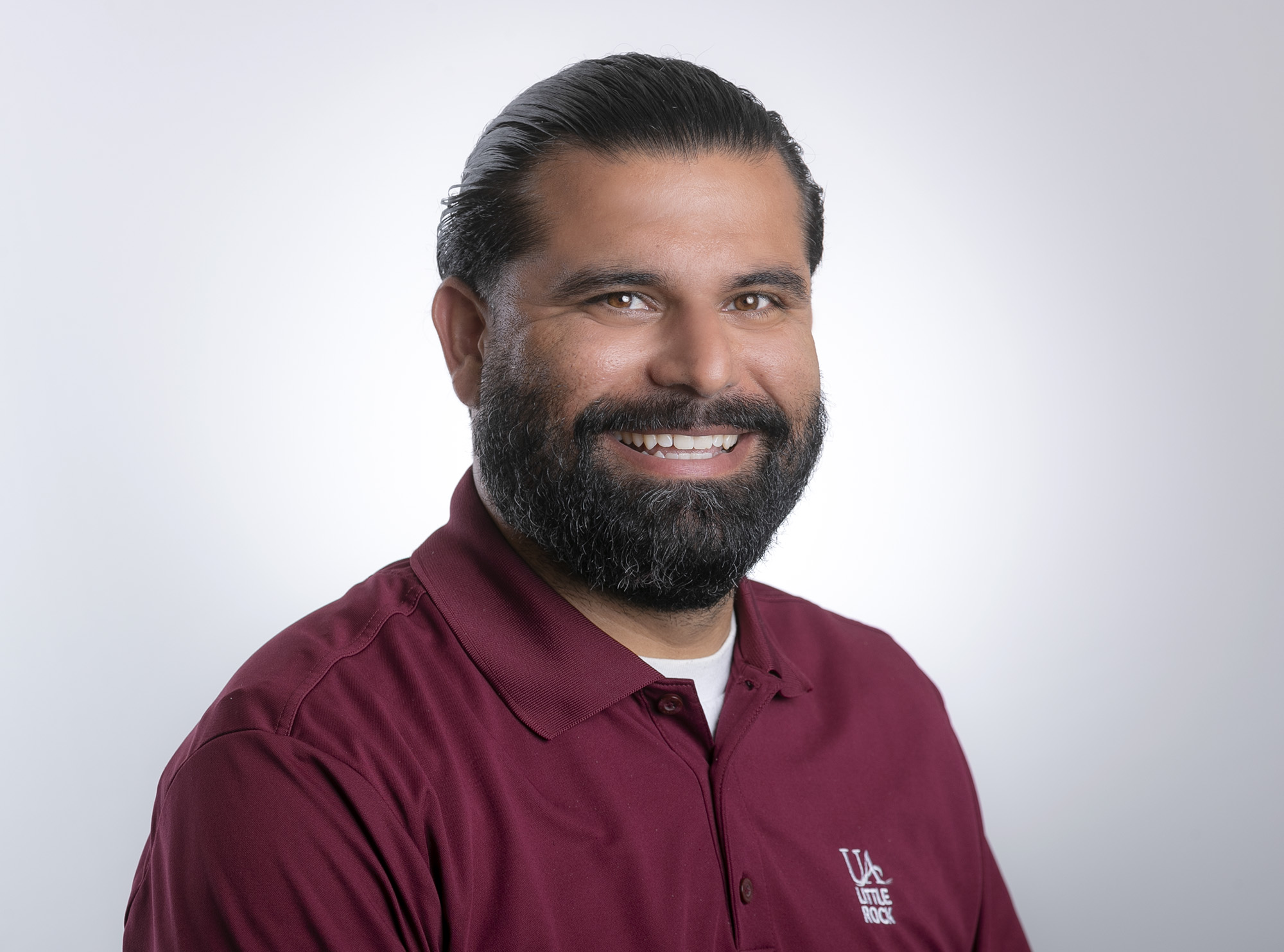Assadi Earns Doctorate at UA Little Rock

For more than a decade, Aresh Assadi has been helping the students and employees of UA Little Rock with career and personal counseling and mental health education.
This month, Assadi, assistant director of counseling services at UA Little Rock, will graduate with a Doctor of Education in Higher Education with a concentration in student affairs.
“It really feels amazing to be graduating,” Assadi said. “It’s been a long process to see this day. I’ve been working on my dissertation for six years. People are calling me Dr. Assadi, and it’s still a shock to me.”
Assadi joined UA Little Rock in 2010 as a therapist and career counselor, and began working on his Ph.D. in 2013.
“I always knew I wanted to get a doctorate. It’s something I knew from a very young age,” Assadi said. “My father was a big proponent of higher education. He was an immigrant. Due to not having a firm grasp of the English language, he was often passed over on promotions. He instilled in me a strong work ethic and a love of education.”
Over the years, Assadi said he learned important skills that helped him excel in his career.
“I just learned so much in that program,” Assadi said. “It’s one of the biggest reasons I got promoted to begin with because I learned so many things along the way. One example is fundraising. During Dr. Barrett’s class, Bob Denman came in and talked about fundraising. After that, we ended up raising $60,000 for mental health programs and scholarships on campus.”
In February 2020, Assadi was promoted to assistant director of Counseling Services just one month before the COVID-19 pandemic closed schools down.
“With classes being remote, you would think it would be less busy, but it was the opposite for Counseling Services,” Assadi said. “We were the busiest we have ever been in the past year. I think the pandemic shone a light on how important mental health is. People were dealing with isolation, hopelessness, depression, financial problems, health issues, and more. It was a scary time for people, and it made the stigma of going and getting counseling less severe.”
Meanwhile, Assadi completed his dissertation exploring masculinity, mental health, and attitudes towards willingness to seek help among male college students.
“This is a common phenomenon across campus colleges,” Assadi said. “There is a lot of stigma when it comes to mental health in general. Younger people and men have even more negative attitudes when it comes to seeking help for mental health. That is very bad considering the high rates of suicide among college students. Early detection and treatment is crucial to treating mental health disorders. Stigma delays the process a lot and results in horrible consequences.”
His advice for college students is to take care of their mental health. Assadi said students can get tips on how to keep healthy minds and bodies by checking out the Wellness and Inclusion Instagram page.
“I really encourage students to take care of their mental health and engage in self-care,” Assadi said. “College students shouldn’t be scared to ask for help. It doesn’t matter how big or small your problem is, there is someone on campus who can help you.”
